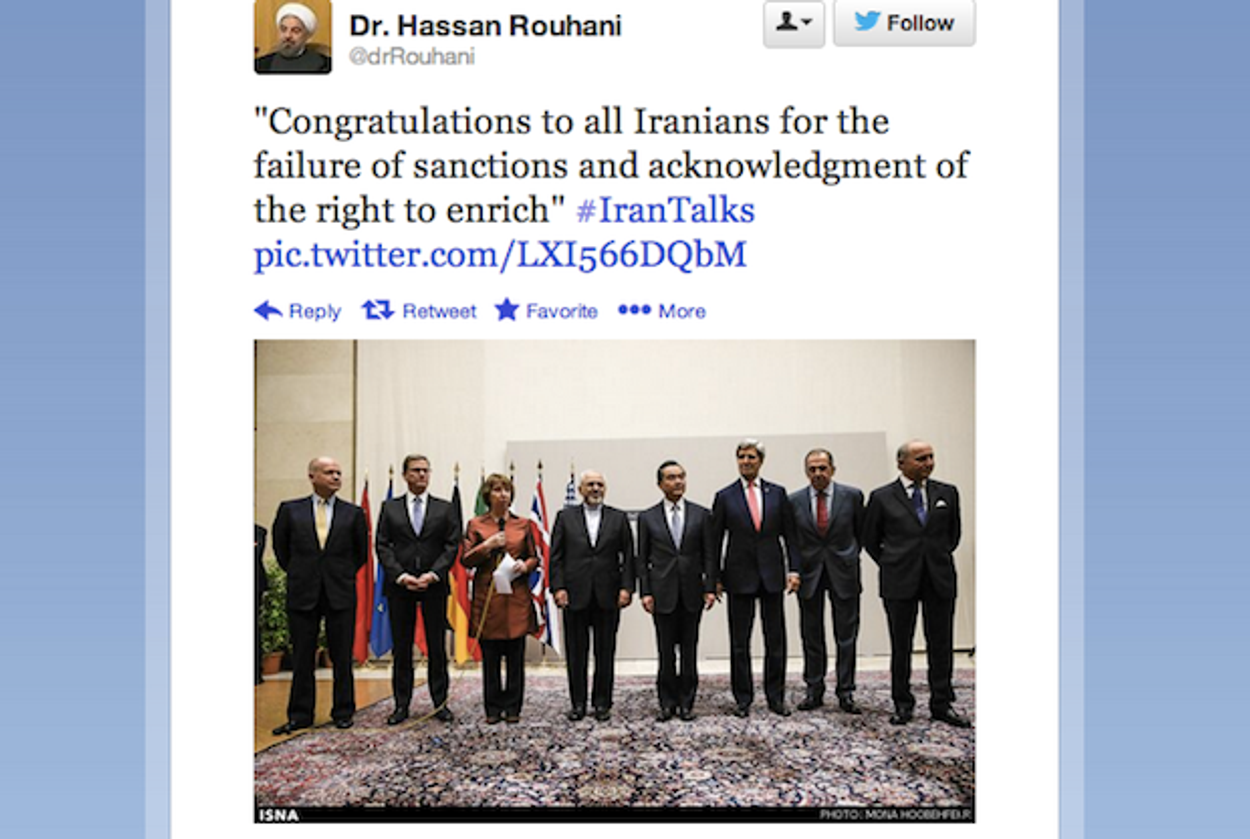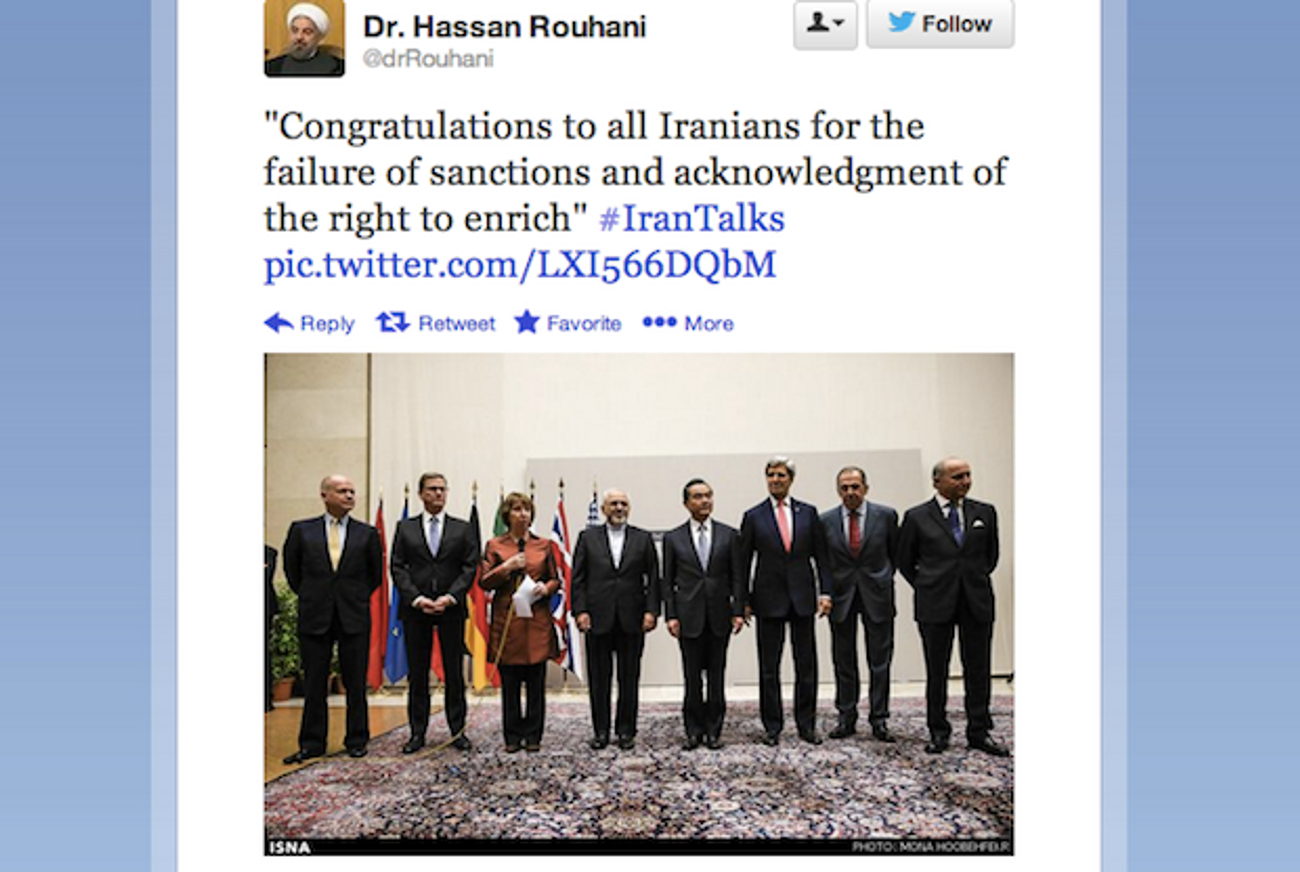What You Need to Know About Iran Nuclear Deal
Plus Israel registers its disappointment




Tonight a confederacy of journalists deviated from their ordinary Saturday night regimen of sitting around inertly talking about nothing on Twitter to talk about talk about something important on Twitter. It was there that the deal between Iran and the P5+1 Group was first announced, sometime shortly after 9 p.m. eastern time, well after midnight in Europe and the Middle East. For a few hours, there were celebrations and denunciations alike, which seemed odd considering that nobody but a few privileged diplomats yet knew the contours of the final deal reached.
So goes the discourse. Here’s some of what we now know.
Iran, which has long resisted international monitoring efforts and built clandestine nuclear facilities, agreed to stop enriching uranium beyond 5 percent, a level that would be sufficient for energy production but that would require further enrichment for bomb-making. To make good on that pledge, Iran will dismantle links between networks of centrifuges.
Its stockpile of uranium enriched to 20 percent, a short hop from weapons-grade fuel, would be diluted or converted into oxide so that it could not be readily used for military purposes. Iran agreed that it would not install any new centrifuges, start up any that are not already operating or build new enrichment facilities.
The agreement, however, does not require Iran to stop enriching uranium to a low level of 3.5 percent, or to dismantle any of its existing centrifuges.
If this doesn’t sound like anything conclusive, it shouldn’t. The deal is interim, decidedly modest, and the analysis of it is just underway. We’ll really know more in the coming days. In the meantime, here are some tidbits about the deal.
The United States and Iran engaged in secret talks since March without the knowledge of many of its allies. This managed to do a few things: Sped the deal along once the nuclear talks began, angered France (which might explain why it was so ardent in its initial opposition to the deal), and chagrined Congress.
Speaking of chagrin, while the sun hasn’t even come up yet in Jerusalem, numerous Israeli officials (including Yair Lapid, Naftali Bennett, and others) have come out to denounce the deal. Expect that rivulet to become a stream in the coming hours.
Adam Chandler was previously a staff writer at Tablet. His work has appeared in the New York Times, the Wall Street Journal, the Atlantic, Slate, Esquire, New York, and elsewhere. He tweets @allmychandler.